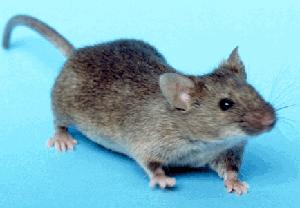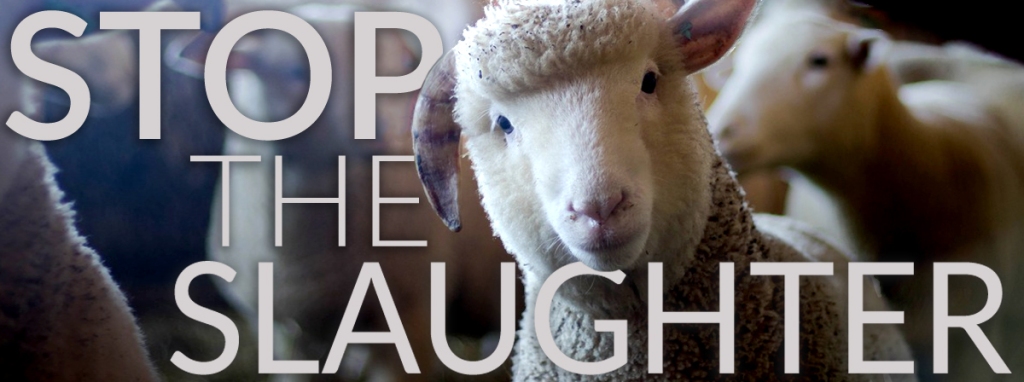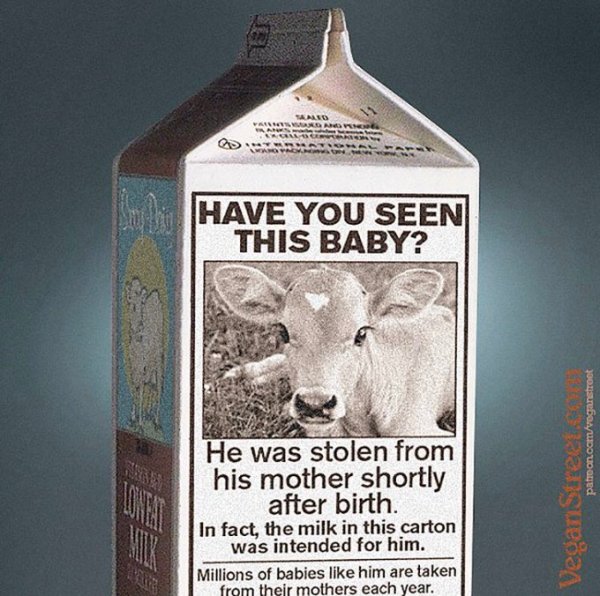Israel Bans Animal-Tested Products & Other Good Testing, Fur News

Wikimedia Commons
Written by Michelle Kretzer
Companies that test their products on animals needn’t bother trying to ship them to Israel, because, starting New Year’s Day, the country banned the import, sale, and marketing of animal-tested cosmetics, toiletries, and household cleaners. Previously, in 2007, the Israeli government had banned using animals to test personal-care and household products within the country. But with the new law, which was passed in 2010 and came into effect January 1, 2013, lawmakers have one-upped themselves, blocking products that have been tested on animals in other countries from even crossing Israel’s border.
PETA and our affiliates are working to end the testing of cosmetics and household products on animals in countries around the world, and Israel has proved that a full ban on such vile products is not only possible but also ethically responsible. The EU had passed a similar ban, which was also scheduled to take effect in 2013, but lawmakers are now considering extending that deadline. PETA and PETA U.K. have been pushing hard to get the EU to uphold the original end date. In addition, PETA India is trying to get a similar ban implemented in that country, and the effort has a lot of momentum. PETA and PETA Asia have been helping Chinese scientists switch to in vitro cosmetics testing methods and are encouraging the Chinese government to accept the results in place of the animal tests that it currently requires. And in the U.S., PETA has been purchasing stock in companies that conduct animal tests so that we can propose shareholder resolutions to switch to humane testing methods.
But despite all the legal hullabaloo, we can at least designate our homes cruelty-free areas. It’s easy to select personal-care and household products that weren’t tested on animals by glancing at PETA’s new global Cruelty-Free Shopping Guide, the latest complete list of companies that refuse to conduct or pay for any animal tests anywhere in the world.
Israeli monkey-breeding farm “mazor” to close | Y Net News
Attorney General Yehuda Weinstein decided Saturday to back an initiative by Environmental Protection Minister Gilad Erdan to ban the import and export of monkeys to Mazor Farm (BFC) and limit its activities to medical research in Israel only.
Erdan welcomed the decision, saying: “Banning the trade of monkeys bolsters animal rights and sends a very clear message: Trading animals for profit is wrong.”
Erdan’s initial move to limit BFC’s operations was met with legal hurdles, as the Environmental Protection Ministry’s own legal counsel expressed concern that the move may infringe on the freedom of occupation rights of businesses that trade animals.
Erdan than asked Weinstein to rule on the matter, focusing specifically on the export and import of monkeys by BFC. The minister said that the limitation will have to impact on research facilities in Israel.
“Closing Mazor Farm stems from moral, ethical and educational reasons – all of which are meant to minimize the harm and suffering of wild animals,” Erdan said in his brief.
“Israel should not be a center for monkey trade for other countries,” Erdan stressed, “Especially since the local demand in Israel is so low that it does not morally justify the existence of a farm whose main business is large-scale exports,” he added.
Still, while the AG ruled that the Erdan’s ministerial jurisdiction allows him to make extensive changes to the volume of animals trade for research purposes, there was no legal justification to bar such action altogether.
The ruling states that the import and export of monkeys for research purposes will be barred, and that BFC’s breeding operations must be limited to medical research in Israel only.
Weinstein ruled that the limitation on the export and import of monkeys will be applied gradually over the next tow years. “This two-year period takes into consideration the needs of research facilities in Israel, as well as those of Mazor Farm, to adjust to these changes,” he said.
The AG also ruled that the new regulations must be anchored by the proper legislation; and ordered the Environmental Protection Ministry to update the relevant international bodies of the changes, as required by various international research treaties Israel is a part of.
Israel’s animal rights group welcomed the decision, saying it was “Putting an end to one of the cruelest ways in which animals in Israel are treated. Mazor Farm has been a black stain on Israel’s society since the early 1990s.
“We will continue to pursue the issue for the two years until the ban takes effect, to stop the farm’s cruel and corrupt trade in monkeys.”
The decision, the statement added, “Sends a clear message to anyone who abuses animals for a living – the Israeli public will no longer tolerate cruel practices, only because a handful of people make their living off them, even if it’s out of the public eye. This is a happy day for anyone who has morals and scruples.”
Anabel Zamir, a leader of the animal rights campaign against the Mazor Farm, welcomed the ruling, but noted that “The attorney general is still allowing animal trade for profit, under the state’s sponsorship, for the next two years, without mandating proof that any such trade will be done for life-saving purposes. That’s very disturbing.”
BFC was unavailable for comment.
United Airlines Will Not Ship Primates to Labs! | Source PETA
Following a relentless PETA campaign, United Airlines has announced that it now prohibits the transportation of primates to laboratories for use in cruel and deadly experiments!
In 2011, when United announced its planned merger with Continental Airlines, PETA contacted United to ask whether the airline would maintain its compassionate ban on shipping primates to laboratories or allow the cruel practice, as Continental had. When officials refused to give a straight answer and then a United cargo representative confirmed in writing that the company was not prohibiting such shipments, PETA launched a public campaign urging the newly merged airline not to send monkeys to die in pain and misery in laboratories.
United received more than 130,000 e-mails from PETA supporters who took action through our website. Thousands of dedicated activists flooded United’s Facebook wall with messages and heartbreaking photos of primates locked in laboratories. And PETA organized demonstrations against the airline at its offices around the world, including at the company headquarters in Chicago. We also purchased stock in the company with the intention of introducing a shareholder resolution later this year.
United Airlines’ laudable decision not to ship primates to laboratories means that, with our recent Air Canada victory, not a single commercial North American airline is willing to do so, making it much more difficult for experimenters to get their hands on primates in order to separate them from their families and poison them, drill into them, addict them to drugs, and lock them in solitary confinement.
PETA will continue to pressure the few remaining major airlines that haven’t seen the light and followed United’s lead. This shrinking list includes only Air France, China Eastern Airlines, Philippine Airlines, and Vietnam Airlines. You can help animals by urging these airlines to stop this cruel practice.
Thank you for helping make this victory possible and for your compassion for animals everywhere!
HSI Commends Taiwan for Historic Ban on Trade in Marine Mammal Products
Humane Society International/Canada commends Taiwan for passing a landmark ban on trade in marine mammal products, including seal skins, but exempting products of traditional indigenous hunts. The Taiwanese Legislative Yuan passed the legislation with unanimous support following a multi-year campaign by Taiwanese animal protection group EAST in collaboration with HSI.
“The compassionate actions of the Taiwanese Legislative Yuan will save countless seals and other marine mammals from a horrible fate,” said Rebecca Aldworth, executive director of HSI Canada. “The momentum to end trade in marine mammal products is growing and the sealing industry’s days are numbered. Instead of providing more pointless subsidies to artificially prop up this shameful practice, Canada should prohibit the slaughter and invest in a transition program for sealers.”
“Citizens of Taiwan care deeply about animal welfare, and we do not want to trade in products of cruelty that the rest of the world has rejected,” said Wu Hung, executive director of EAST. “I am very proud of the leadership Taiwan has shown in banning trade in marine mammal products. I hope that many other nations will follow suit, and that the Canadian government will finally do as the majority of Canadians and people around the world want and end the seal hunt for good.”
“Between 2003 and 2009, Taiwan imported 430,000 kilograms of seal oil, which made us the 4th largest importer of seal oil in the world. Through our trade in seal products, consumers in Taiwan were unintentionally involved in the killing of thousands of innocent seals in Canada,” said Legislator Lin of the Legislative Yuan in Taiwan. “Taiwan’s decision is an important step forward for animal protection and conservation in Asia.” Canada’s commercial seal hunt is the largest slaughter of marine mammals on Earth. Because most Canadians oppose commercial sealing, the products of the seal slaughter are almost entirely exported. With the United States, European Union and Russia prohibiting trade in seal products, the Canadian sealing industry has sought to develop alternate markets in Asia, sparking protests in mainland China, Hong Kong, South Korea and Taiwan.
EAST launched their campaign to secure a Taiwanese ban on seal product trade in 2010, achieving massive public support for the move and convincing many retailers in Taiwan to voluntarily discontinue sales of seal products. The prohibition on trade in marine mammal products cements Taiwan’s position and ensures that its trade in marine mammal products will never resume.
Facts:
- The United States, European Union, Russia, Belarus, Kazakhstan, Mexico—and now Taiwan–have prohibited trade in some or all seal products.
- In January 2012, sealing industry representatives admitted that there are 400,000 seal skins in inventory on the global market.
- In April 2012, when it appeared the annual seal slaughter would not go ahead due to lack of markets, the Government of Newfoundland and Labrador announced that it would provide $3.6 million in loans to Carino Processing Limited to stockpile skins to meet “future demand.”
- At the industry’s height, sealing revenues amounted to about 3 percent of the landed value of Newfoundland’s fishing industry. In recent years, the landed value of the seal hunt has been in the region of $1 million annually, with only a few hundred fishermen participating in the slaughter.
- 2010 polling revealed half of Newfoundland sealers with an opinion support a sealing industry buyout—a plan in which sealers would receive immediate compensation as the hunt is ended and funds would be invested in economic alternatives in the communities involved.
Media Contact: Dean Pogas, 514.395.2914, dpogas@humanesociety.org
if such goodness were contagious,
it would be so wonderfully
outrageous!!!!
Karen Lyons Kalmenson













































ABSOLUTELY FANTASTIC NEWS !! I PRAY THE WORLD FOLLOWS !!!
LikeLike
As do I! Thanks, Linda.
LikeLike
if such goodness were contagious,
it would be so wonderfully
outrageous!!!!
LikeLike
This is such Fantastic news im so vry happy to read it thanks for posting this Stacey im sharing in several places
LikeLike
I agree! Thanks as always, hon.
LikeLike
Good for Israel ..keep up the good work
LikeLike
I agree, thanks, Jane.
LikeLike
Reblogged this on skjaldmarr's valley.
LikeLike
Thank you!
LikeLike
Reblogged this on KVARM.
LikeLike